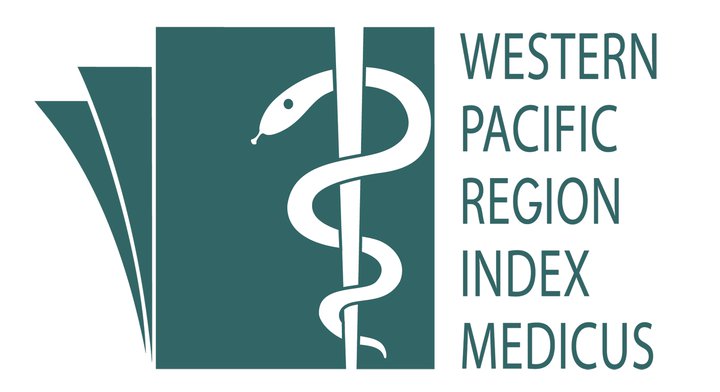Knowledge, Attitudes, and Practices of Students towards TQM in High Institute of Health Sciences in Sana'a, Yemen
Keywords:
KAP, TQM, students, influencing factors, Yemen.Abstract
Introduction: The quality of education is one of the controversial topics and vital issues that requires more emphases from researchers due to the current challenges in education at the university level. Involvement and participation from the student/the primary customer is essential to implement quality assurance and to reach for academic accreditation. The aim of this study is to assess knowledge, attitudes, and practices (KAP) of students towards TQM and its influencing factors at High Institute of Health Sciences (HIHS) in Sana'a, Yemen. Methods: A cross-sectional study using a self-administered questionnaire was conducted in 2016. A total of 208 students from second and third study levels in HIHS had participated. Descriptive statistics, chi-square, and one-way ANOVA were used to determine the association between students’ KAP towards TQM with its influencing factors. Results: Mean age of the students were 22.44(SD±2.027) year old. Majority of HIHS students were male 135 (64.9%) and 108 (51.9%) were from the third studying level. The highest students' KAP scores were 53.4%, 65.4%, and 41.3% for good knowledge, good attitudes, and moderate practices respectively. Education Department was found to be significantly associated with students' knowledge and practices with p<0.05. In addition, the means of knowledge, attitudes, and practices were higher among pharmacy, radiology, and physiotherapy students respectively than laboratory students. Students' practices were found to be significantly associated with management, academic, and material factors with p<0.001. Conclusion: HIHS students were observed to have good knowledge, good attitudes, and moderate practices towards TQM.References
REFERENCES
Kaidama M. and HLosarwar S. The Total Quality Management Practices in
Technical Education and Vocational Training Institutions in Yemen. International
journal of science and research methodology. 2016; 2(3).
Ahmed, M. A. H., and Siddiek, A. G. Strategic Quality Management in the Arab
Higher Education Institutes: A Descriptive & Analytical Study. International Journal
of Business and Social Science.2012; 3(24).
Abu-Al-Sha'r AL-Harahsheh M. Criteria of Total Quality Management of Faculty
Teaching Skills: Perceptions of University Students. International Research in
Education. 2013;1(1).
Pourrajab M, Basri R, Daud S, Asimiran S. Students' perception of total quality
management: role of location and gender. International Journal of Management in
Education. 2015;9(2):200.
Sabet, H. S., Saleki, Z. S., Roumi, B., Dezfoulian, A. A study on total quality
management in higher education industry in Malaysia. International Journal of
Business and Social Science.2012; 3(17).
Hill F. Managing service quality in higher education: the role of the student as
primary consumer. Quality Assurance in Education. 1995;3(3):10-21.
Nyaoga, R. B., Nyamwange, O., Onger, R. N., &Ombati, T. O. Quality
management practices in Kenyan educational institutions: The case of the University
of Nairobi. African Journal of Business & Management, 1 (2010) 14,28.
Alnaji, L., Ridha, M., and Al-Nedawi, A. Total Quality Management Application in
Alzaytoonah University: Opinion of Teachers in Faculty of Economics and
Administrative Sciences. Total Quality Management.2014; 4(22).
Aina Sola, SKayodeOyeyemi. Application of Total Quality Management in the
Classroom. British Journal of Arts and Social Sciences. 2012;11,1(2046-9578).
Mohammed K, Ali B, Abdulaziz A. Total Quality Management in Saudi Higher
Education. International Journal of Computer Applications. 2016; 135(4):6-12.
Zwain A. TQM Practices and Organisational Knowledge Creation: An Empirical
Study of Iraqi Higher Education Institutions. Asian Journal of Business and
Accounting. 2014;7,1(1985–4064).
Pineda, Aaron Paul M. "Total quality management in educational Institutions:
influences on customer satisfaction." Asian Journal of Management Sciences and
Education 2 (2013).
Singh, V., Grover, S., and Kumar, A. Evaluation of quality in an educational
institute: a quality function deployment approach. Educational Research and Reviews,
3(4), 162.
Alshohybe N, Al-Raimi M, Almutawkkil A. Evaluation of Quality Assurance
Implementation in Sana’a University: The Computer Center as a case. International
Journal of Computer Science and Information Technology & Security.
;6,3(2249-9555).
Mosalam A., Evaluation of Quality Management in High Institute of Health
Sciences in Sana'a from standpoint of teaching staff, 2010, not published study.
Blasiak R, Stokes C, Meyerhoff K, Hines R, Wilson L, Viera A. A CrossSectional
Study of Medical Students' Knowledge of Patient Safety and Quality
Improvement. North Carolina Medical Journal. 2014; 75(1):15-20.
Altahayneh, Z. L. Implementation of Total Quality Management in colleges of
physical education in Jordan. International Journal of Business and Social Science.
;5(3).
Kimani S, Kagira E, Kendi L. Comparative Analysis of Business Students’
Perceptions of Service Quality Offered in Kenyan Universities. International Journal
of Business Administration. 2011; 2(1).
Nawelwa J, Sichinsambwe C, Mwanza B. An analysis of total quality
management (TQM) practices in Zambian secondary schools. The TQM Journal.
; 27(6):716-731.
Downloads
Published
How to Cite
Issue
Section
License
IJPHR applies the Creative Commons Attribution (CC BY) license to articles and other works we publish. If you submit your paper for publication by IJPHR, you agree to have the CC BY license applied to your work. Under this Open Access license, you as the author agree that anyone can reuse your article in whole or part for any purpose, for free, even for commercial purposes. Anyone may copy, distribute, or reuse the content as long as the author and original source are properly cited. This facilitates freedom in re-use and also ensures that IJPHR content can be mined without barriers for the needs of research.






